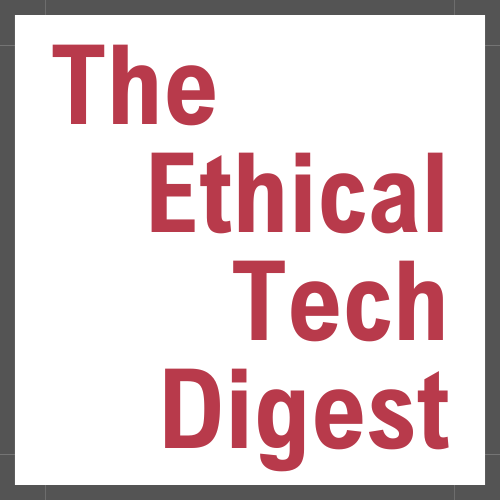🌐 Summer Global Roundup - September 29, 2024
A summer roundup of curated stories and opinions about ethical tech and innovation.

The EU’s AI Act is now in force as of August 1, 2024. The bloc is taking an overall risk-based approach to regulation of AI applications. One important strand of the law applies to developers of so-called general purpose AIs (GPAIs). Most GPAI developers will face light transparency requirements — though they will need to provide a summary of training data and commit to having policies to ensure they respect copyright rules, among other requirements. Currently, GPAIs with the potential to post a systemic risk are defined as models trained using a total computing power of more than 10^25 FLOPs. TechCrunch The Digest has linked to a longer overview by Latham & Watkins LLP for more context, hosted on JD Supra. JD Supra
U.S. sues TikTok, alleging millions of child privacy violations. The government alleged that TikTok unlawfully collected data like email addresses from children and allowed them to interact with adult content. TikTok disagreed with the allegations in the suit. NBC For context, the digest has linked to the official Children's Online Privacy Protection Rule (COPPA). FTC
Google is ruled to be a search monopoly. Currently, Google pays billions to Apple to be its default search engine. Will Judge Mehta's future remedy put any dent into Google's success? Only time will tell. The New York Times
Music labels' AI lawsuits create copyright puzzle for courts. Should the law make exceptions for AI's use of copyrighted material to make something new? And how much do elements like melody, harmony and rhythm interfere with determining when parts of a copyrighted work have been infringed? Reuters
In India, The Digital Personal Data Protection (DPDP) Act of 2023 will be released for public review. The government aims to give notice of the rules in the current session of Parliament. The Economic Times
The New York Times dives into the details of Professor Ethan Zuckerman's lawsuit to protect his application "Unfollow Everything" from being sued by Meta. Specifically, Zuckerman wants to use Section 230 of the Communications Decency Act of 1996 in his favor. The New York Times | Daily Hampshire Gazette
Google cuts a deal with newsrooms. Journalists furious. The deal shelves a high-profile bill, dubbed the California Journalism Preservation Act, that would have forced technology companies, including Google (GOOGL) and Meta (META), to pay news companies to distribute their content online. The bill, sponsored by state assemblymember Buffy Wicks, was modeled after similar laws implemented in Australia and Canada, providing funding to local news organizations that have seen their business models collapse amid the rise of big tech platforms. But the agreement was immediately met with fierce criticism from journalist unions, who called the deal “disastrous.” CNN
Will AI-Generated Misinformation Impact the Results of the 2024 Presidential Election? UC Berkeley's Hany Farid debates R Street Institute's Chris McIsaac on one of the hottest topics of the election. Divided We Fall
The US Government Wants You—Yes, You—to Hunt Down Generative AI Flaws. The AI ethics nonprofit Humane Intelligence and the US National Institute of Standards and Technology are launching a series of contests to get more people probing for problems in generative AI systems. WIRED
Which Countries Are Using ChatGPT the Most? It's not the United States, according to data collected from Boston Consulting Group. Social Media Today
Publishers prevail in lawsuit over Internet Archive’s ’emergency’ e-book lending. The lawsuit concerned the Internet Archive’s National Emergency Library, a program it established at the beginning of the pandemic to allow wider access to some 1.3 million e-books. Previously only able to be checked out one at a time, books were later able to be “borrowed” by many people at once. TechCrunch
US voters targeted by Chinese influence online, researchers say. The campaign is part of a known Chinese state-linked effort analysts have dubbed "Spamouflage" or "Dragonbridge," which pushes a mixture of spam and targeted propaganda onto the internet. Reuters | Graphika
Australia pushes for AI rules, focusing on oversight and accountability. The country’s Industry and Science Minister, Ed Husic, introduced ten voluntary AI guidelines and launched a month-long consultation to assess whether these measures should be made mandatory in high-risk areas. CIO
Contributor: Sudeshna Mukherjee
